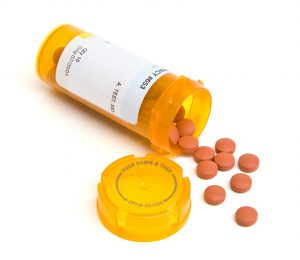Amidst a shortage of prescription stimulants, concerns have been raised about the potential increase in illicit drug use. With many individuals relying on prescription stimulants to manage conditions such as attention-deficit/hyperactivity disorder (ADHD), the shortage has left many struggling to access the medication they need. This has led some individuals to turn to illicit drugs as an alternative, which can have serious health consequences.
The shortage of prescription stimulants has been attributed to a variety of factors, including supply chain disruptions in the fall of 2022 and increased prescribing and dispensing. Due to the shortage, it is essential that stimulants be prescribed responsibly. Prescribers should assess the risk of misuse, abuse and addiction prior to prescribing stimulant medication. To prescribe stimulant medications, providers must follow Diagnostic and Statistical Manual of Mental Disorders (DSM-5) criteria to confirm ADHD diagnosis. Prescribers must cross-reference prescription information with information available in state-run prescription drug monitoring programs (PDMPs), as well as limit the number of pills and frequency of pills prescribed. Patients and their family members should be educated on how to safely store and dispose of prescription stimulants and the potential risks of misuse, addiction and overdose.
It is important for providers to be aware that there is a greater risk of diversion when prescription stimulants are scarce. Approximately 56-80% of the population reported that stimulants were obtained from friends or family members. The most vulnerable population for nonmedical use of prescription stimulants was the 18-25 age group, and reported misuse of stimulants was for improving academic or work performance, followed by recreational or social use.
These drugs are easily accessible through the internet and social media, posing as prescription drugs such as Adderall and Xanax. Those websites are targeted at youth at risk of diversion, misuse and shortages. According to a report published by the Centers for Disease Control in December 2022, overdose deaths among youth aged 14-19 increased significantly from 2019 to 2021. Over 25% of the deaths were caused by counterfeit pills, which mimicked prescription medications but contained deadly fentanyl.
Illicit drugs can have a range of negative effects on both physical and mental health and can lead to addiction and overdose. Over 50.6 million fake pills were seized by the Drug Enforcement Administration in 2022. There was a potentially lethal dose of fentanyl in six out of 10 pills containing the drug. In Delaware, 85% of the 537 overdose deaths involved fentanyl. The number of overdose deaths caused by illicit stimulants is also on the rise. Last year, 44% of overdose deaths contained cocaine and 12% methamphetamine.
It is important to screen patients for stimulant use disorders. To find more information on screening and assessment go to HelpIsHereDE.com//health-care-providers.
It is crucial for individuals to prioritize their health and safety by seeking out alternative treatments or working with their healthcare provider to find a solution. For free 24/7 counseling, coaching, and support, as well as links to mental health, addiction, and crisis services call the Delaware Hope Line at 1-833-9-HOPEDE. To search for treatment and recovery services in Delaware or nearby states, visit HelpIsHereDE.com.
